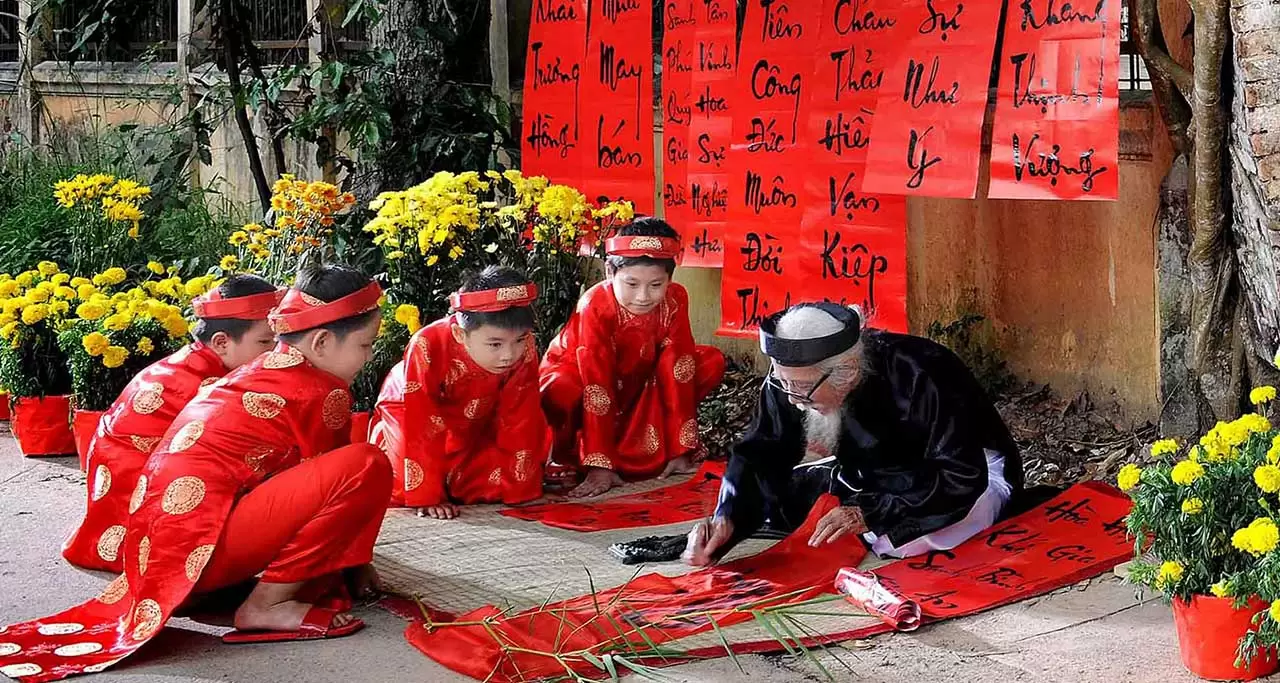
Each country, each nation always has its own unique culture. Culture is the foundation for the prosperous development of each country according to the history of each country. So what is the culture? And what are the characteristics of Vietnamese culture?
1. What is a culture?
Currently, culture does not have an accurate and uniform definition.
According to President Ho Chi Minh, culture is "For the sake of survival as well as the purpose of life, human beings create and invent language, writing, ethics, law, science, religion, literature, art, tools of daily life in terms of clothing, eating, etc dwelling and modes of use. All of those creations and inventions are cultural." President Ho Chi Minh's definition gives us a more general and comprehensive view, culture comes from human activities themselves – activities for the purpose of survival in human life that are repetitive and handed down from generation to generation to form culture.
Thus, it can be seen that culture is an indispensable value in each country and each nation. Culture covers the entire aspect of human life, from the language, language, religion, historical sites, landscapes,... of each country, these are all values created by man. Culture has spiritual significance to serve the needs and interests of people, nations and nations.
2. Characteristics of the culture:
First, culture is systemic:
The systematics of culture is understood as the close and intimate relationship between elements, which are events to connect phenomena and laws together in the process of formation and development. It must be systematic for culture to perform social functions. Culture has intrinsically covered all aspects of life – society, in all fields in every country. Therefore, it increases the stability of social life, and is a solid foundation for society to develop progressively.
Second, culture is valuable:
Values are the core foundation of culture. The essence of culture is to bring goodness, beauty, truthfulness – goodness – beauty. In each country, culture is a measure of value from the past to the present, from history to the present.
Culture itself has material values (serving material needs), spiritual values (serving spiritual needs); in the sense of use, moral value and aesthetic value; Over time, there is eternal value and transient value.
Third, culture is human:
Human life is for people, bringing value to people. This is the factor that distinguishes culture as a man-made social phenomenon from other natural values. Being human, that is, culture has a connection between people and things, things to things, and things to people. And this is the deepest meaning that culture has.
Fourth, culture is historical:
Historicity has created a depth and depth for the culture. And of course, the thicker the history, the higher the attraction and value. Highly historical culture needs to be preserved and promoted, constantly recreated to be more perfect.
3. Characteristics of Vietnamese culture:
The culture formed from the background of wet rice agriculture:
For a long time, everyone has known that Vietnam is a country that has risen from agriculture and agriculture is the main source of life. With natural conditions, Vietnam is located in Southeast Asia, S-shaped, running from North to South, land area 331,212 km2, coastline 3,260km. Based on geography, our sea is more than 3 times larger than the land area and accounts for about 29% of the entire East Sea, where there are over 3,000 large and small islands.
Vietnam has 54 ethnic groups, a population of more than 96.2 million people, of which Kinh ethnic group is more than 82 million, accounting for a majority of 85.3% (according to the census 01/4/2019), followed by Tay, Thai, Muong and Khmer ethnic groups. The inhabitants of these 5 ethnic groups all take wet rice cultivation as the main source of livelihood. Since feudal times, the majority of Vietnamese people have lived mainly by farming and mainly wet rice cultivation.
Culture that values traditional family values:
The family is two sacred hours, from generation to generation the value of the family never changes. The family is the cell of society, the birthplace, nurture as well as the cradle of development of each person. Characteristic of the Vietnamese nation, family cultural values are drawn from the nation's adaptation and response to nature and society to the challenges of history. Family identity is ancestor worship, which is an ancient belief of Vietnamese people; value the graves and the anniversary of the deaths of grandparents, grandparents, parents. It is the most respectful respect of every human being, each family for the person who gave birth to him.
The culture is imbued with community, village cultural autonomy:
Villages are a unique social organization in Vietnamese feudal society. The village clearly demonstrates the community character. There, members are attached and closely related in all life activities. The village is the ancestral homeland, the burial place of umbilical vegetables, which is respectfully called home. His father had a saying: "Homeland is a sweet bunch / Let me climb every day." Community and autonomy are the basis for Vietnamese villages to have their own regional identity.
In Vietnam, the village is an autonomous entity but the village and the water are closely related, creating the value of the village meaning water.
Source: luatgiaduong.vn